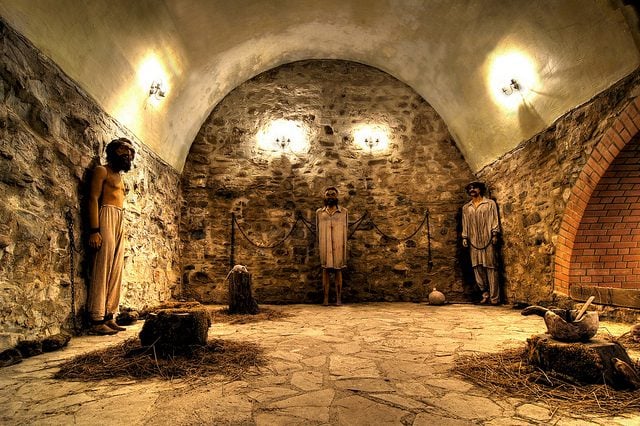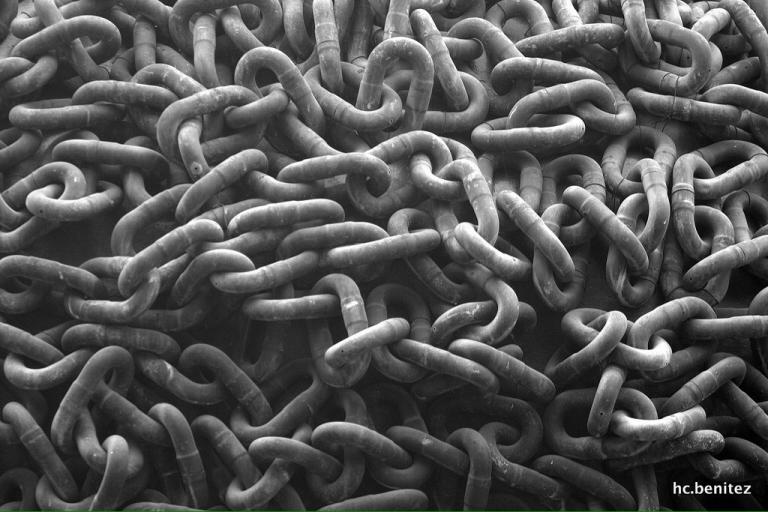Proper 21C
Luke 16:19-31
We all love a good role-reversal story. It explains the popularity of reality television shows like Undercover Boss where the wealthy owner of some national retail brand goes to work with the everyday minimum wage employees. Our movies and television shows are filled with this kind of story, from Trading Spaces with Dan Aykroyd and Eddie Murphy to The Hunger Games.
It’s a beloved trope, one of the seven basic plots in our stories.
It should be no surprise then that Jesus uses this basic storytelling device as well, and parts of his story are drawn almost directly from ancient Egyptian (or Greco-Roman, depending on the scholar) tales.
Perhaps because we are so accustomed to this narrative device, though, we’ve missed the most radical role reversal in Jesus’ parable today. Because the most surprising and most important role reversal doesn’t belong to Lazarus, who goes from emaciated beggar to bliss in the afterlife, or to the rich man, who goes from sumptuous feasts and finery to the fires of Hades.
That trope had all been done before, almost exactly.
No, the most radical reversal belongs to Abraham.
In the popular theology of the day, wealth wasn’t at the root of all kinds of evil. They wouldn’t have seen the rich man as a villain initially. Rather, wealth was a sign of God’s blessing. One needed to look no further than the father of all Jews, Abraham. He was an exceedingly wealthy man, and the Hebrew Scriptures are clear that his wealth was indeed a blessing from God. So, in that tradition, the wealthy in Jesus’ time — many of whom were religious elites and priests — thought of themselves in a direct kinship line from Abraham, inheriting by proxy his wealth and promise.1
On the other side of things, poverty, like we see in Lazaraus, was generally thought of as a curse from God, as punishment for sin, moral failing, and wrongdoing.
In other words, poverty was deserved. And so was wealth. The divide was stark. Wealth was a sign of righteousness. Poverty a sign of sinfulness.
It’s not so different from our own understandings of poverty and wealth today. Many Americans — and even many Christians — believe incorrectly that poverty is a sign of some moral failing, be it laziness, drug use or something similar. We see some of this logic played out in the proposal to cut $40 billion in food aid to the hungry and in need in our country. We’ve heard it justified because those people don’t need really help, that food aid to the hungry makes them lazy and dependent on others, that it weakens their moral resolve.
But Jesus does something interesting with this logic, and it might surprise us just as much as it surprised people 2,000 years ago. The appearance Abraham in this story, standing on the side of Lazarus and arguing with the rich man on behalf of the poor man, likely would have left Jesus’ listeners drop-jawed. Remember, in context, Jesus is telling this story to priests and religious elites who lived in elaborate and posh mansions rivaled only by their Roman governors.
Is this really their wealthy ancestor arguing for the poor man?
Did not God bless Abraham with such wealth and prosperity just like the rich man?
Isn’t poverty the cause of someone’s own sin and failings?
But Jesus isn’t just telling a story about the reversal of roles in the afterlife. And he isn’t just telling a story exhorting individuals to do a better job with individual charity. The rich man and Lazarus aren’t individuals; they are archetypes, standing in for whole classes of people in Jesus’ time.
No, this story isn’t quite so simple. Rather, this story was a direct assault on the kind of theology that blesses wealth even as it exploits through its refusal to share with those who are hungry, starving, and in need. Because in it, Jesus upends the dominant narrative that the elite of the day used not only to justify their extreme wealth but also to isolate themselves from those in need. And this parable upends an entire society’s assumptions and beliefs about who the rich and the poor were in God’s eyes, who was worthy and who was not, who was clean and who was not. It upends the myth that the rich are righteous and their wealth is a blessing from God for their own personal enjoyment. It upends the myth that the rich don’t have a responsibility to the least of these in society.
These myths are our myths as well.
But this story’s implicit claim is that wealth isn’t meant for the individual but for the community.
Wealth is only a blessing when it is shared and shared generously.
Wealth is not meant only for the enjoyment of the rich, but for the support and empowerment of the poor, the oppressed and the marginalized.
See, because the rich man had forgotten something about his wealthy ancestor Abraham. Jewish tradition says that Abraham used his wealth and built a palatial mansion. But it wasn’t for himself. And unlike the rich man, he never barred entrance, but opened doors on all sides for all passersby to enter. There, in his mansion, was a massive banquet table, and on it, every kind of food and wine. Hungry and tired travelers entered, ate their fill. But when they went to thank this wealthy man for his generosity, Abraham pointed to God. He was only a steward of God’s on earth. None of his wealth truly belonged to him. It belonged to God. And because it belonged to God, it also belonged to all of God’s children.
So perhaps Abraham doesn’t really experience a role reversal after all. Maybe Jesus is simply reclaiming his rightful legacy.
The Law and Prophets of the Jewish tradition are clear on how people are to use wealth — large or small. Deuteronomy reminds us that “since there will never cease to be some in need on the earth, God commands you, “Open your hand to the poor and needy neighbor in your land.” And Leviticus instructs that, “If any of your brothers fall into difficulty and their means falter, you shall support them and they shall live with you.”
“If any of your brothers fall into difficulty, you shall support them.”
I think that’s the problem with the rich man in our story today. It isn’t his wealth. The problem isn’t that he is rich. The problem is that he is completely blind to his own identity and to Lazarus’ identity.
To him, Lazarus is below him, less than he is, subhuman even, a victim of poverty and therefore of his own bad choices or his own sins. To the rich man, Lazarus isn’t even worthy enough to pick up scraps of bread that fell from table.
Even when he sees Lazarus at Abraham’s Bosom, he still cannot fathom Lazarus as his equal. He sees Lazarus as someone at his disposal, because the poor are disposable to him. The rich man thinks he can use Lazarus as an errand boy.
“Father Abraham, send that boy down here to me to give me some water. I’m thirsty.”
“Father Abraham, send that boy to my brothers to warn them to act better.”
“Father Abraham,” he says.
This final exchange between the rich man and Abraham is telling.
Because it reveals that the great unbridgeable chasm fixed between the rich man and Lazarus, between Abraham’s Rest and Hades’ torments, is of his own making.
In all his commanding, it never seems to occur to him — still — that Father Abraham isn’t only the father of the rich, that Lazarus too is Abraham’s child, that Lazarus too is the inheritor of Abraham’s legacy and generous wealth.
It never occurs to him that Lazarus is his brother, too.
It never occurs to him that by being a selfish steward of God’s wealth and Abraham’s legacy, he had deprived Lazarus of his rightful inheritance as a child of Abraham.
He has stolen Lazarus’ birthright to food, water, and shelter.
Had it occurred to him on earth, he could have ended the hellish torment of Lazarus, because the Law and Prophets would have commanded him to welcome his brother, aid him, and feed him.
Had it occurred to him in the afterlife, he could have ended his own pain. As it is, so deep is the chasm he has conceived between himself and the poor man Lazarus, the only thing he thinks to ask for is a drop of water to quench his thirst. It doesn’t occur to him to ask for a place at Abraham’s banquet table sitting next to his poor brother named Lazarus.
__________
Sources:
1. Herzog, William. Parables as Subversive Speech. Herzog, rightly, I think draws focus to the role of Abraham within the context of an exploitative economic situation and how theology intersected and justified theologies of oppression. J.M.D. Derrett has an intriguing take as well, in which Lazarus is Eliezer, Abraham’s steward sent to check on how the people are managing his wealth/estate.










